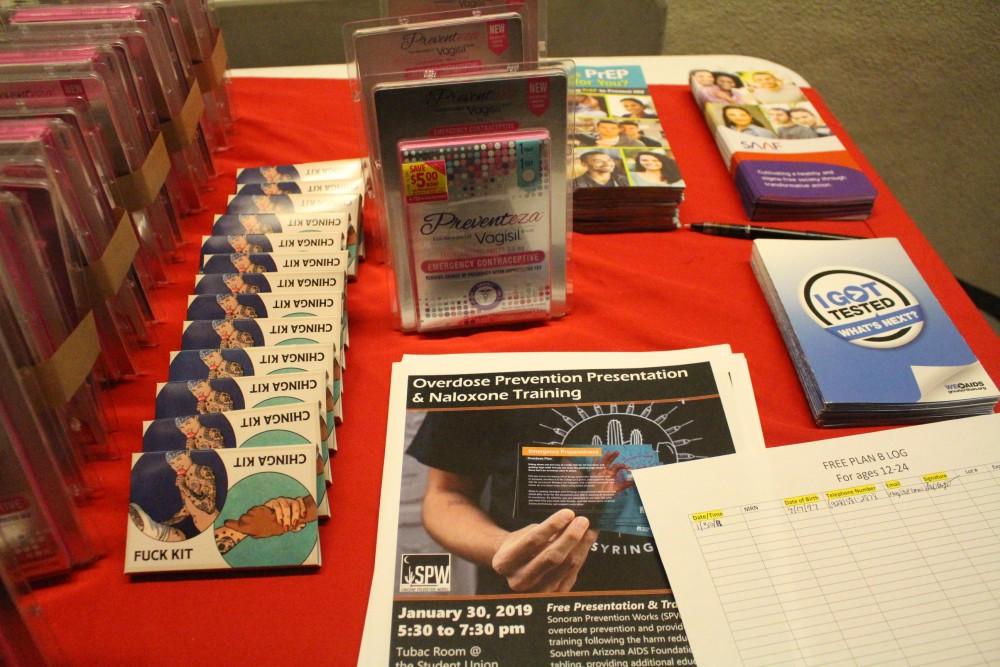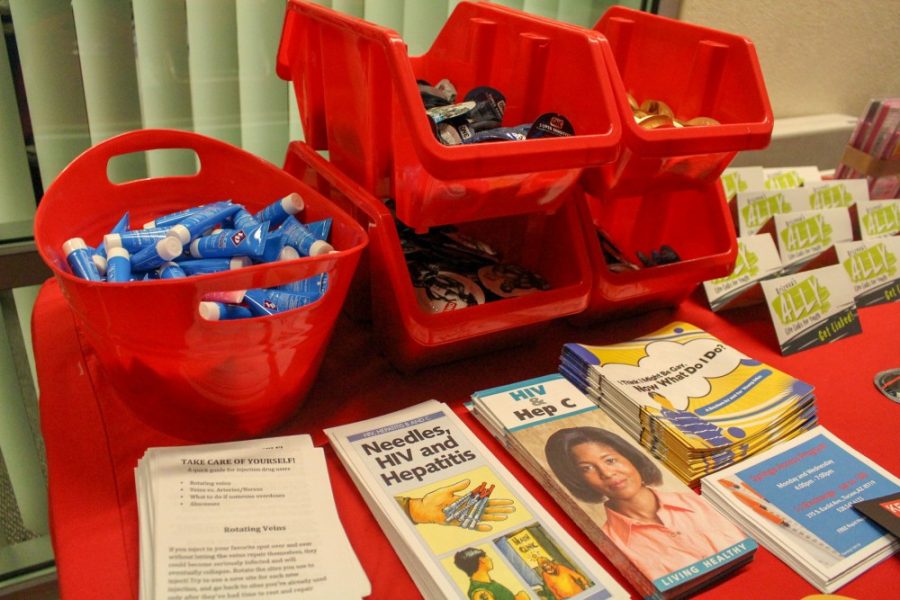Public health senior Zeanna Hawk organized an overdose-prevention presentation and naloxone training aimed at decreasing the number of deaths caused by overdoses in the Tubac Room of the UA Student Union Memorial Center on Jan. 30.
Hawk works for the Southern Arizona Aids Foundation and is a part of the University of Arizona Student Health Advocacy Committee, which she described as, “a liaison between the student body and Campus Health.”
It was through SHAC that Hawk put on the event. According to Hawk, this is the first time that there has ever been a public, club-run overdose-prevention training of any kind on campus.
“I do a lot of different projects at SAAF in relation to Hepatitis C, harm reduction, stigma … ” Hawk said. “I like to partner, I like to collaborate, so this was really great.”
RELATED: Statewide study by UA medical students shows increase in opioid overdose related cardiac arrests
The event itself consisted of a presentation discussing various topics about overdose ranging from national statistics to stigmas about people with drug addictions. The second part of the event consisted of a training where naloxone was distributed and all attendees were taught how to use the opioid overdose treatment.
Christopher Thomas, the Southern AZ overdose prevention coordinator for Sonoran Prevention Works, gave the presentation and training.
Sonoran Prevention Works is an overdose prevention program that, according to Thomas, focuses on street outreach, trainings on harm reduction, hepatitis, stimulants, needle-stick prevention, stigma and a statewide naloxone distribution program.
This is the first time they have given a training on campus.

Sarah Marrujo, a first year master’s student in public health in the health promotion program, said she came to the training because she volunteers for SPW.
“[I am] interested in harm prevention and drug prevention. I think getting that information is really important,” Marrujo said.
Melanie Walker, another first-year master’s student in public health, attended because she has people in her life who have used or currently use drugs and wanted to learn more.
“I do think the UA gives access to prevention techniques,” Walker said. “I definitely think it is very available, if you want it.”
Marrujo also said she felt the university provides resources to learn prevention techniques, but they have more work left to do.
“I do think they could do a better job at it,” Marrujo said. “I think there could be better ways to get that access out, I just don’t know where [or] what that looks like, but perhaps that could improve.”
Hawk said that the idea of the overdose training was inspired by her work for SAAF and her passion about HIV and Hepatitis C prevention.
The whole process to organize this training took a year and a half. Hawk had to propose the idea, get it approved from the head of her committee and put it on a board. This step was hindered when SHAC temporarily closed. SHAC reopened with the new semester, but this meant that she had to start the whole process again.
Hawk said she believed that a big part of what made the process so long was also pushback from the university due to their policy of not wanting to be associated with anything to do with drugs, even overdose prevention training. However, she also said that SHAC was very helpful in the process.
RELATED: $2.2. million federal grant helping Arizona Center for Rural Health combat opioid epidemic
Hawk said she hopes she will be able to do more trainings in the future and that someone associated with Greek Life had reached out to her to do training with her on a regular basis.
During her last year here at the UA, Hawk said she wanted to do as much as she can to make this campus safer and the people healthier.
“I want this stuff to be talked about, because it’s important and it’s happening,” Hawk said. “I hope we get better, I hope UA gets better at talking about this stuff.”
Follow the Daily Wildcat on Twitter









